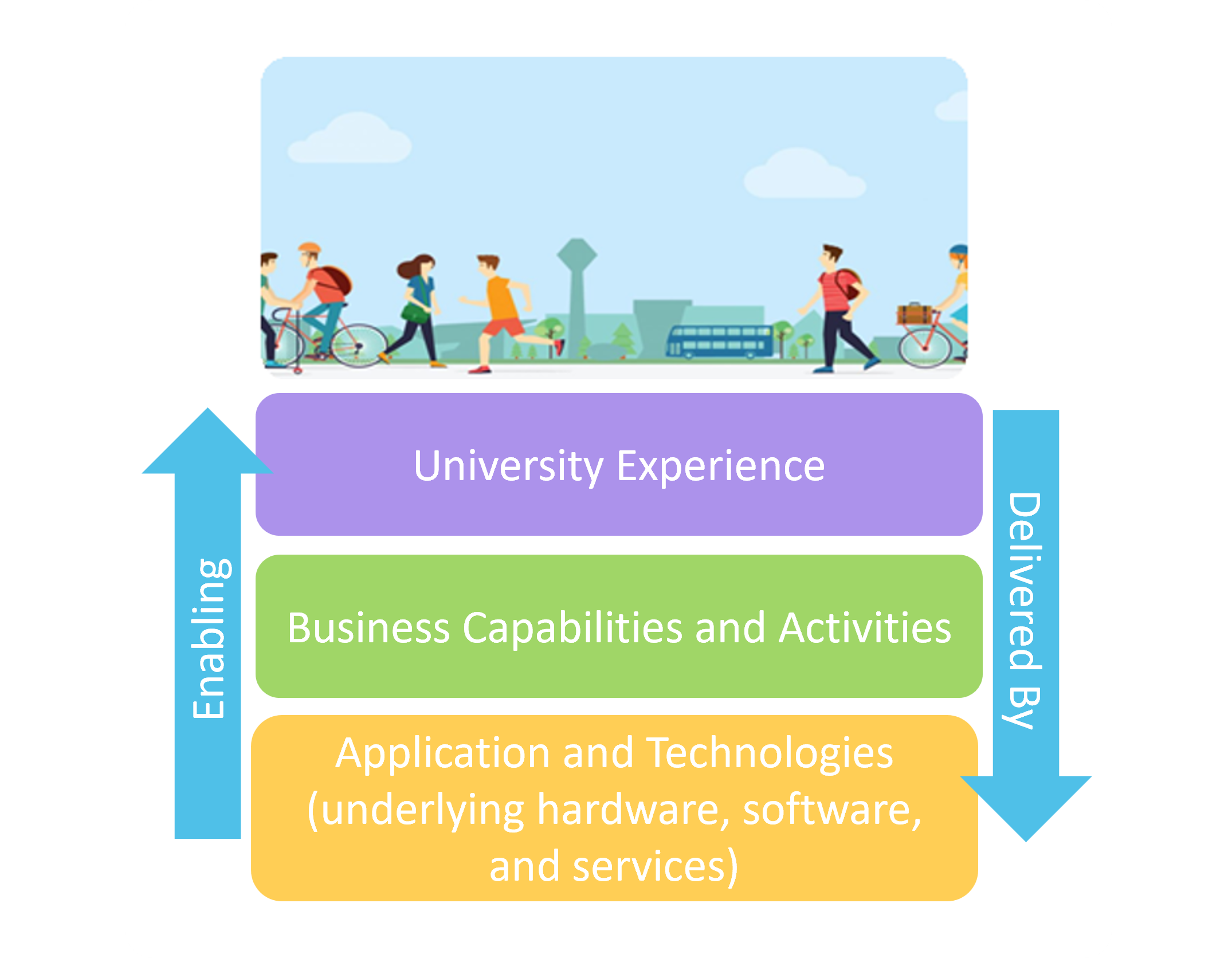
Enterprise Architecture @ UCD
Interweaving Business and IT

Enterprise Architecture
Enterprise Architecture (EA) is a holistic approach to designing and maintaining
University's digital campus,
that enables UCD to achieve the right balance between business transformation and continuous operational efficiency.
Quick Overview
- What is Enterprise Architecture?
- Application Portfolio Management
- Digital Application Governance Policy
- Architecture Roadmap
- IT System Portfolio
- Change Control
Key Reference Materials
- Higher Education Reference Models
- Enterprise Architecture Principles
- Non-Functional Requirements
- Application Ownership Roles & Responsibilities
Useful Guides
- Digital Solution Deployment Guide
- UCD Application Register
- UCD Guide to Application Data Gathering
- What is an Application?
- IT Project Managers - EA & PMO Alignment
- Identifying Architectural Scope
- Glossary
For Enterprise Architecture queries please contact (opens in a new window)UCD's Enterprise Architecture Manager
UCD IT Services
Computer Centre, University College Dublin, Belfield, Dublin 4, Ireland.Contact us via the UCD IT Support Hub: www.ucd.ie/ithelp
